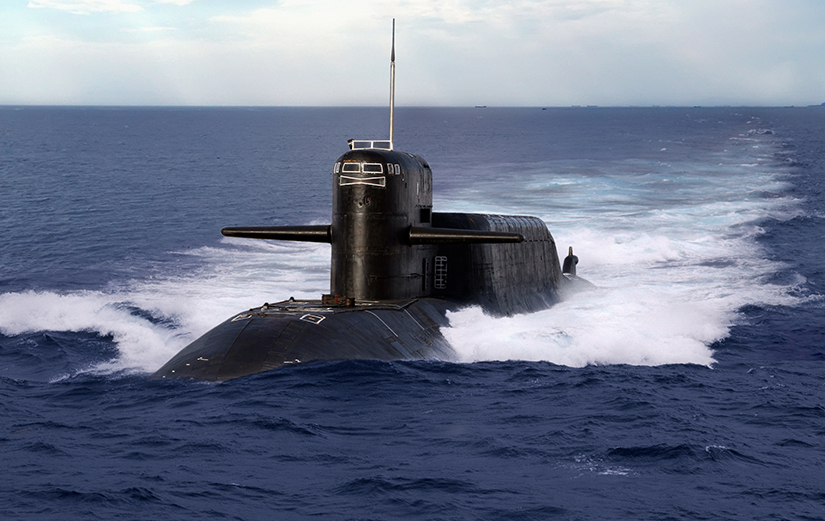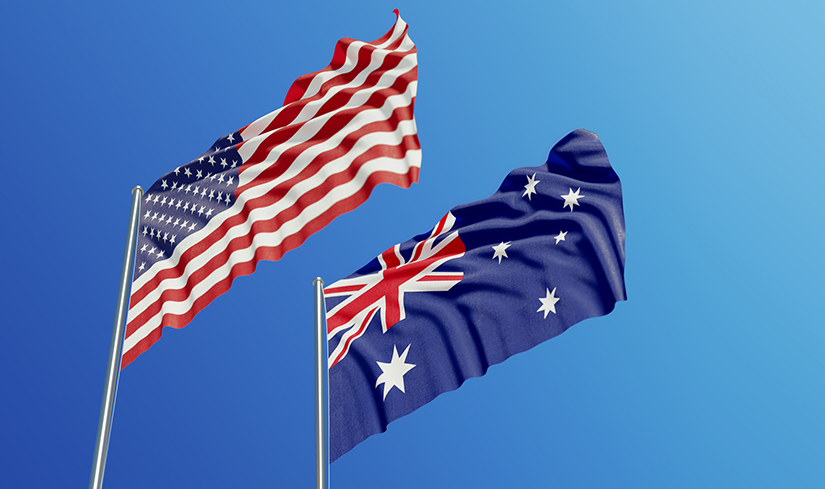A Surprise Announcement
In June 2025, the Financial Times reported that the US Department of Defense had initiated a formal review of AUKUS—the trilateral security partnership between the United States, the United Kingdom, and Australia.[1] The review is being led by Under Secretary of Defense for Policy Elbridge Colby, a known skeptic of the pact. Shortly after the report, a Pentagon spokesperson confirmed that the reassessment aligns with the Trump administration’s America First doctrine.[2] While initial reports suggested a 30-day timeframe, Colby’s office later announced via a post on X that the process would extend into the autumn.[3]
The sudden announcement came as a surprise to Canberra, where AUKUS has been framed as a cornerstone of national strategic policy. Although Colby had previously acknowledged AUKUS’s utility, he has consistently argued that US domestic submarine production should take precedence.[4] Further exacerbating Australian concerns was the omission of any reference to AUKUS in Secretary of Defense Pete Hegseth’s address at the Shangri-La Dialogue in May.
Following the announcement, longstanding critics of AUKUS within Australia seized the moment to amplify their opposition. Several former prime ministers characterized the review as a great opportunity to reconsider Australia’s participation.[5] Conservative voices—including former senior foreign affairs and defense officials—have begun advocating for alternative strategies, such as acquiring smaller French-built submarines or investing in long-range strategic bombers.[6]
In response, Australian government officials have sought to contain domestic unease, framing the review as a routine procedural step under a new US administration. Defense Minister Richard Marles reaffirmed AUKUS’s importance during bilateral talks with Secretary Hegseth at the Shangri-La Dialogue,[7] while Foreign Minister Penny Wong reiterated Australia’s commitment in a phone call with US Secretary of State Marco Rubio.[8] Meanwhile, bipartisan members of the US Congress have actively lobbied in support of AUKUS, submitting letters to Secretary Hegseth and introducing legislation aimed at strengthening the agreement.[9]
Amid these developments, Colby reportedly urged Australia and Japan to clarify their roles in the event of a Taiwan contingency.[10] It remains unclear whether this entailed a request for pre-commitment or a call for operational clarity. Either interpretation has sparked concern in Canberra, where the move is seen as pressuring Australia to accept strategic obligations in exchange for nuclear submarine transfers. Prime Minister Anthony Albanese responded by pointing to Washington’s own policy of strategic ambiguity and reaffirmed that Australia would not pre-commit to any future conflict.[11]

Why the Review?
In Australia, the Trump administration’s sudden announcement of a review of AUKUS has been interpreted by some as a hallmark of Trump’s transactional, deal-centered diplomacy. During bilateral talks at the recent Shangri-La Dialogue, Secretary Hegseth reportedly urged Australian Defense Minister Marles to raise defense spending to 3.5% of GDP “as soon as possible.”[12] Prime Minister Albanese responded by reaffirming that defense budgeting remains a sovereign decision, signaling that Australia would not comply with the request in the near term.[13] Against this backdrop, some observers view the AUKUS review as a tactical maneuver—leveraging strategic uncertainty to pressure Canberra on defense outlays.[14]
However, beyond diplomatic brinkmanship, the reassessment appears to reflect deeper structural concerns. While the construction and transfer of nuclear-powered submarines under AUKUS promise significant benefits, they also face persistent challenges—ranging from budgetary constraints to labor shortages and technical capacity gaps.[15] Despite investments from both Washington and Canberra, the US submarine industrial base remains under strain. If Australia were to receive three submarines as scheduled in the 2030s, some analysts estimate it could take nearly a decade for the US Navy’s fleet to recover to its previous levels.[16] Although others argue the operational impact would be minimal, questions persist: why should the United States compromise its own capabilities to fulfill commitments to Australia, especially amid declining domestic shipbuilding capacity?
That said, AUKUS offers strategic dividends for both countries. Australia is undertaking major upgrades to the HMAS Stirling naval base in Western Australia and the adjacent Henderson shipyard, which are scheduled to host rotational visits by Virginia-class submarines starting in 2027. These facilities will provide the United States with new repair and maintenance hubs for nuclear submarines operating in the Indo-Pacific. Looking ahead to the 2040s, Australia’s capacity to build nuclear-powered submarines could expand the trilateral production line—enhancing collective deterrence against China.
Importantly, the submarine transfer under AUKUS is grounded in formal agreements among the United States, United Kingdom, and Australia and codified in US defense authorization legislation. Canberra has already contributed twice to the revitalization of the US shipbuilding sector, amounting to AU$1.6 billion (approximately ¥168 billion). The UK administration led by Keir Starmer, which came into office in July 2024, also conducted a review of AUKUS but reaffirmed its strong support. During the Australia-UK 2+2 ministerial meeting held in Sydney in July 2025, the parties announced a new treaty committing to sustain AUKUS for the next 50 years.[17]
In such a context, a decision by the Trump administration to abandon AUKUS would not only severely damage trilateral relations but also reverberate across Asia. Beyond hosting US submarines, Australia plays a critical role in enabling forward deployment in the event of a contingency involving China. Given Under Secretary Colby’s stated objective of concentrating strategic resources in Asia to counter Chinese hegemony, it seems unlikely he would pursue a course that fundamentally undermines US-Australia ties. While the review may result in adjustments to delivery timelines or cost-sharing arrangements, the prospect of abandoning AUKUS altogether—including cancellation of submarine transfers—appears exceedingly remote.

Lingering Challenges
Even if AUKUS survives the Trump administration’s review, many of its associated challenges will remain unresolved. Washington is likely to press Canberra for greater burden-sharing, including increased financial contributions. The fact that several European allies have already committed to defense spending at 3.5% of GDP—or up to 5% when infrastructure is included—strengthens the US negotiating position. Within Australia, there has long been recognition that defense spending may eventually need to be hiked to around 3% of GDP to accommodate the costs of nuclear submarines. However, Trump’s high-handed tactics may have hardened domestic resistance, making such increases politically difficult.[18]
Moreover, the US shipbuilding bottleneck persists. According to the Government Accountability Office, despite recent federal investments, the construction rate for Virginia-class submarines fell from 1.2 submarines per year in 2023 to 1.15 in 2024—well short of the Navy’s target of 1.5.[19] This underscores a fundamental reality that financial resources alone cannot rapidly expand industrial capacity. The United Kingdom, which unveiled a new defense strategy in June, has announced an ambitious plan to build up to 12 next-generation attack submarines. Like the United States, it faces significant hurdles in scaling up shipyard capabilities, and the feasibility of its plan remains uncertain.
Arguably, the most profound impact of the review lies not in AUKUS itself but in the erosion of trust within the US-Australia alliance. The original AUKUS agreement appeared to deepen trilateral bonds, reinforcing a sense of shared strategic destiny.[20] Yet since the inauguration of the second Trump administration, Australian confidence in the alliance has begun to waver. The abrupt announcement of the AUKUS review has fueled perceptions in Canberra that even foundational partnerships can be treated as bargaining chips. A public opinion poll conducted in late July 2025 found that 60% of Australians were pessimistic about the likelihood of receiving US submarines.[21]
Prime Minister Albanese has repeatedly emphasized the strength of the alliance and the durability of AUKUS. Nevertheless, since his reelection in May, he has yet to hold a face-to-face meeting with President Trump. Meanwhile, during a six-day visit to China for annual summit talks—an unusually long stay—Albanese received a notably warm reception. Even if AUKUS endures, its medium- to long-term implications may be more far-reaching than anticipated. The trust underpinning US-Australia relations, built over decades since World War II, now faces a serious test.
(Originally published in Japanese on August 5, 2025)

(2025/09/09)
Notes
- 1 Demetri Sevastopulo, “Pentagon Launches Review of Aukus Nuclear Submarine Deal,” Financial Times, June 12, 2025.
- 2 Brad Ryan and Emilie Gramenz, “US Launches AUKUS Review to Ensure It Meets Donald Trump’s ‘America First’ Agenda,” ABC News, June 12, 2025.
- 3 Office of the Under Secretary of Defense for Policy (@DOD_Policy), “Secretary Hegseth has directed the Department of Defense to undertake a review of the AUKUS Initiative,” X, July 30, 2025.
- 4 Adam Creighton, “Donald Trump’s Top Defence Advisers Warn Against Selling Nuclear Subs to Australia,” The Weekend Australian, January 1, 2024.
- 5 Ben Doherty, Tom McIlroy, Josh Butler, and Dan Jervis-Bardy, “Keating Says US AUKUS Review Could ‘Save Australia from Itself’ as Morrison Urges Against Overinterpreting Move,” The Guardian, June 12, 2025.
- 6 Peter Varghese, “I Ran DFAT. I Hope Elbridge Colby Sinks AUKUS for Australia,” Financial Review, July 15, 2025; Peter Briggs, “Instead of Wasting More Time on the Flawed AUKUS Submarine Program, We Must Go to Plan B Now,” The Guardian, March 11, 2025; Peter Jennings, “Five Steps to Fix AUKUS—and a Viable Defence Plan B,” Strategic Analysis Australia, June 15, 2025.
- 7 Ryan and Gramenz, “US Launches AUKUS Review,” 2025; see note 2.
- 8 Matthew Quagliotto, “Former Pentagon Official Ely Ratner Says AUKUS ‘Too Big to Fail’—but Review Raises Tough Questions,” The Nightly, June 13, 2025.
- 9 Office of Senator Tim Kaine, “Kaine and Ricketts Introduce Bipartisan AUKUS Improvement Act,” June 20, 2024.
- 10 “US Demands to Know What Allies Would Do in Event of War over Taiwan,” Financial Times, July 13, 2025.
- 11 Josh Butler, “Australia Rebuffs Calls to Commit to Joining Hypothetical US-China Conflict,” The Guardian, July 13, 2025.
- 12 US Department of Defense, “Readout of Secretary of Defense Pete Hegseth’s Bilateral Meeting with Australia,” June 1, 2025.
- 13 Sarah Basford Canales, “Albanese Again Pushes Back on US Demand for Australia to Increase Defence Spending to 3.5% of GDP,” The Guardian, June 2, 2025.
- 14 “US Sends a Shot across the Bows of Its Allies over Submarine Deal,” Financial Times, June 15, 2025.
- 15 Tomohiko Satake, “Moroha no tsurugi to shite no AUKUS: Goshu no genshiryoku sensuikan shutoku ni muketa kadai (zenpen)” [AUKUS as a Double-Edged Sword: Challenges Facing Australia’s Nuclear Submarine Acquisition (Part I)], International Information Network Analysis, March 14, 2024.
- 16 Michael Shoebridge, “Putting Australia First in the AUKUS Review,” Strategic Analysis Australia, June 12, 2025.
- 17 Australian Government Department of Defence, “Joint Statement on the Australia United Kingdom Nuclear-Powered Submarine Partnership and Collaboration Treaty,” July 26, 2025.
- 18 Andrew O’Neil, “An AUKUS Ultimatum for Australia over Taiwan Risks Backfiring on Washington,” The Interpreter, July 14, 2025.
- 19 US Government Accountability Office, Report to Congressional Committees: Weapon System Annual Assessment, June 2025, 149.
- 20 Tomohiko Satake, “AUKUS tanjo no haikei to kadai: Goshu no shiten” [The Origins and Challenges of AUKUS: An Australian Perspective], International Information Network Analysis, September 28, 2021.
- 21 Josh Butler, “Guardian Essential Poll: Most Australians Doubt We Will Ever Receive AUKUS Submarines amid Trump Uncertainty,” The Guardian, July 29, 2025.

